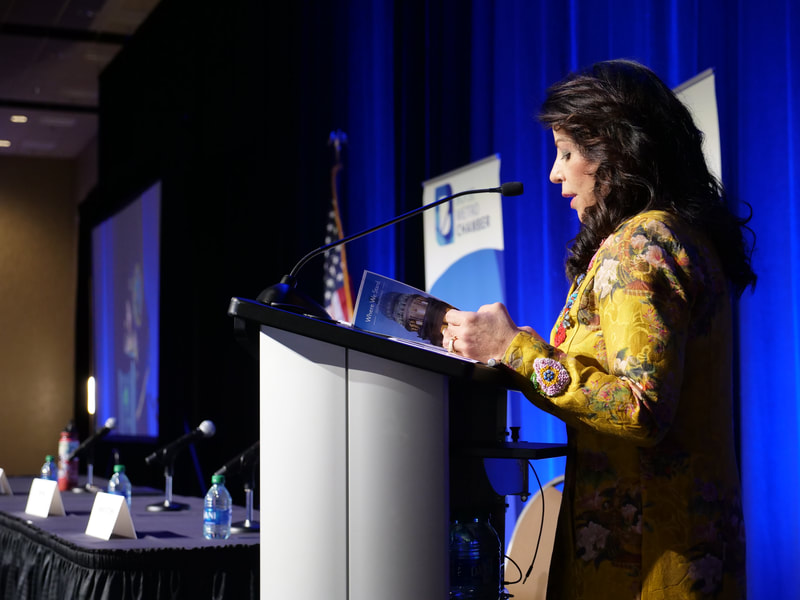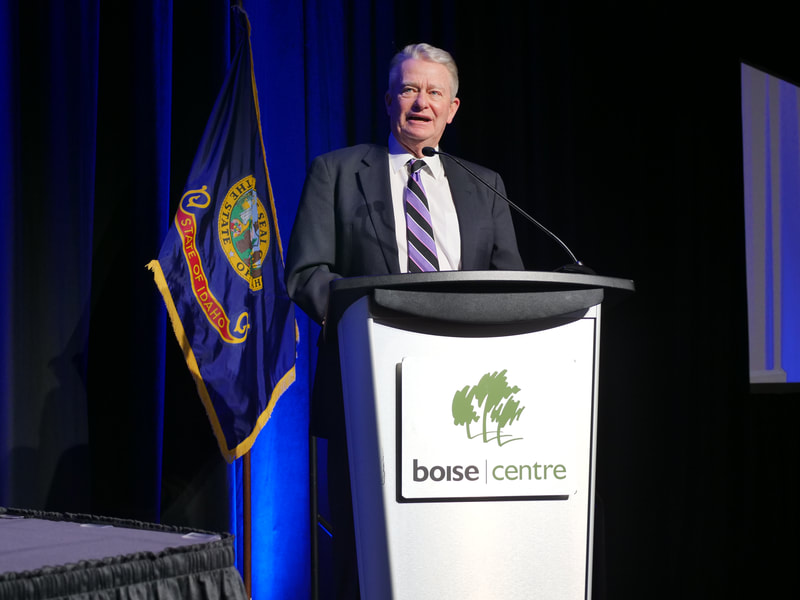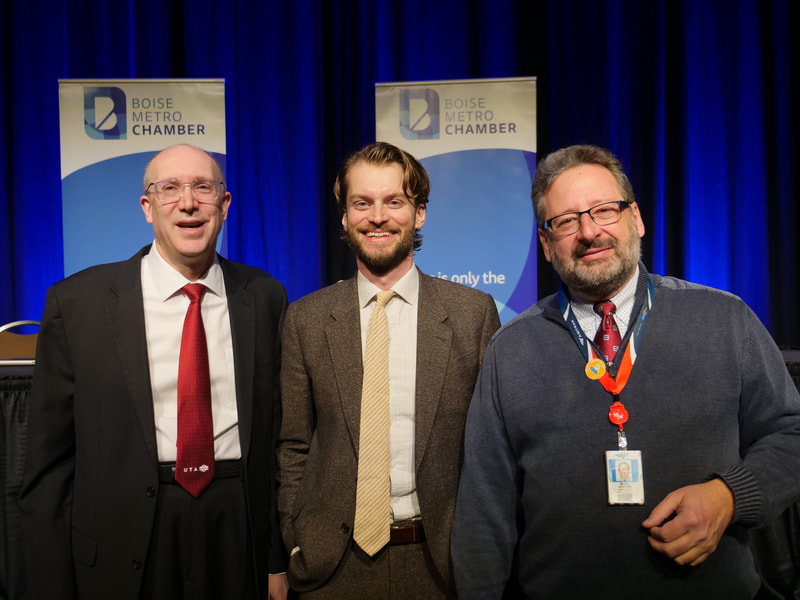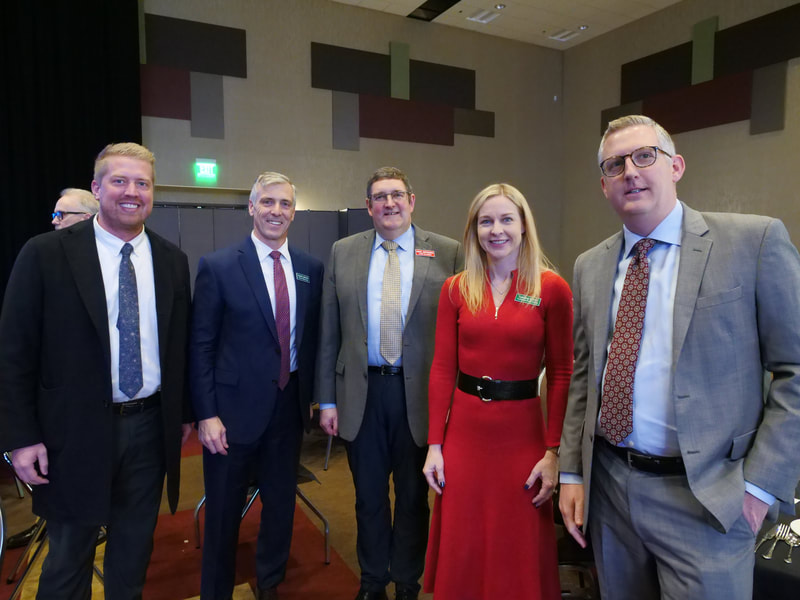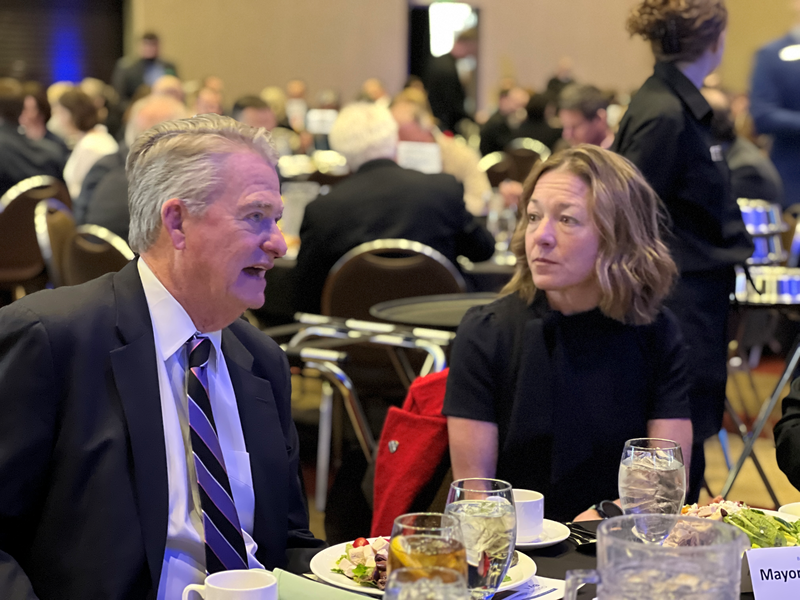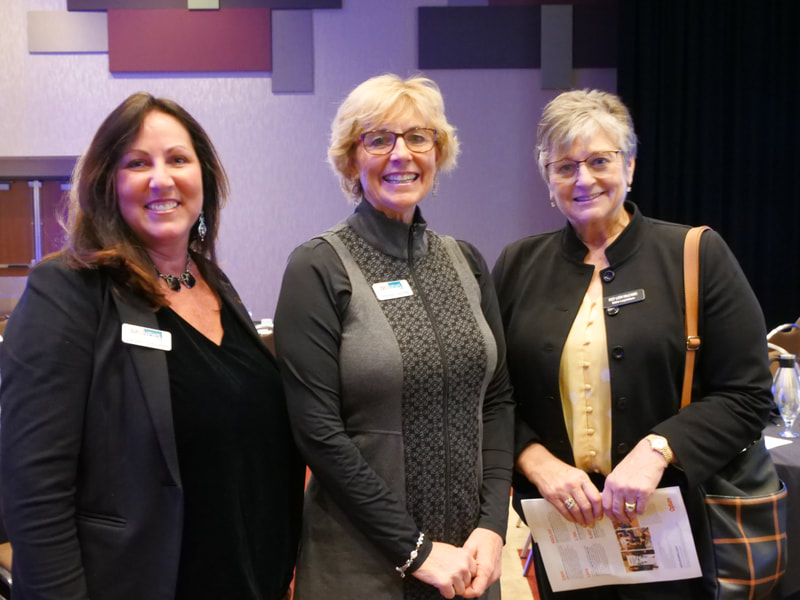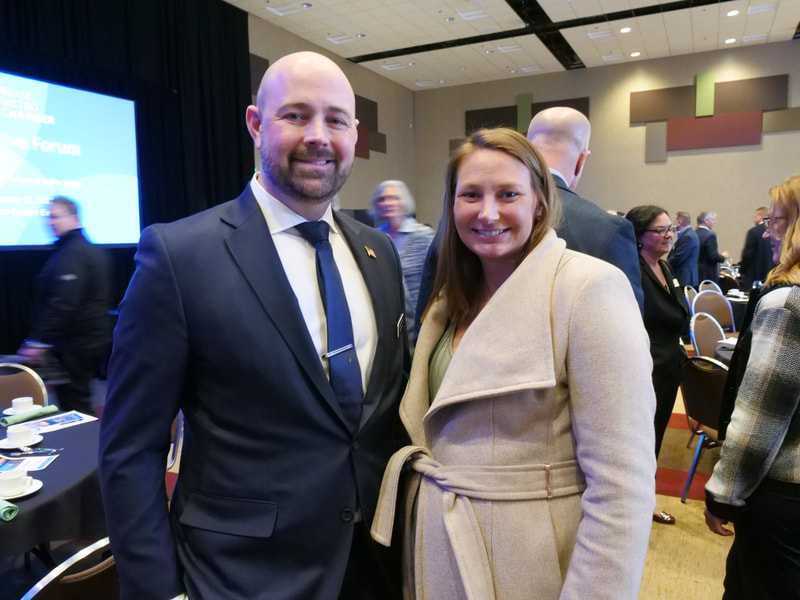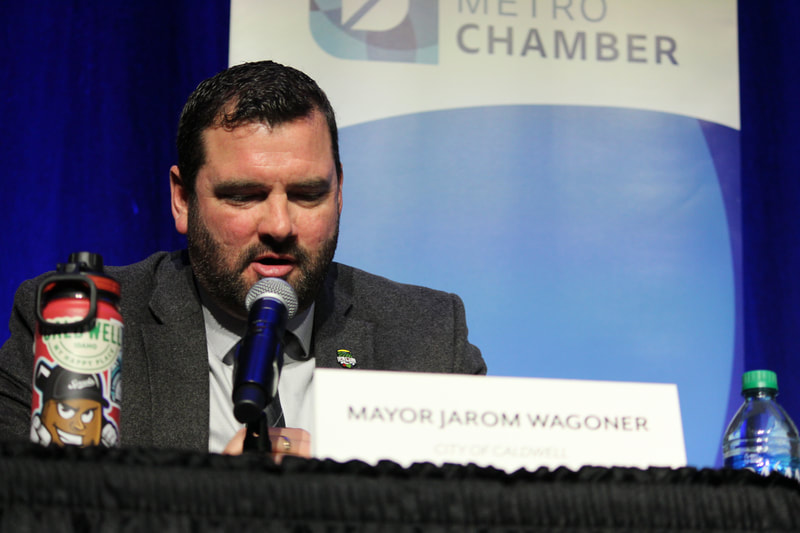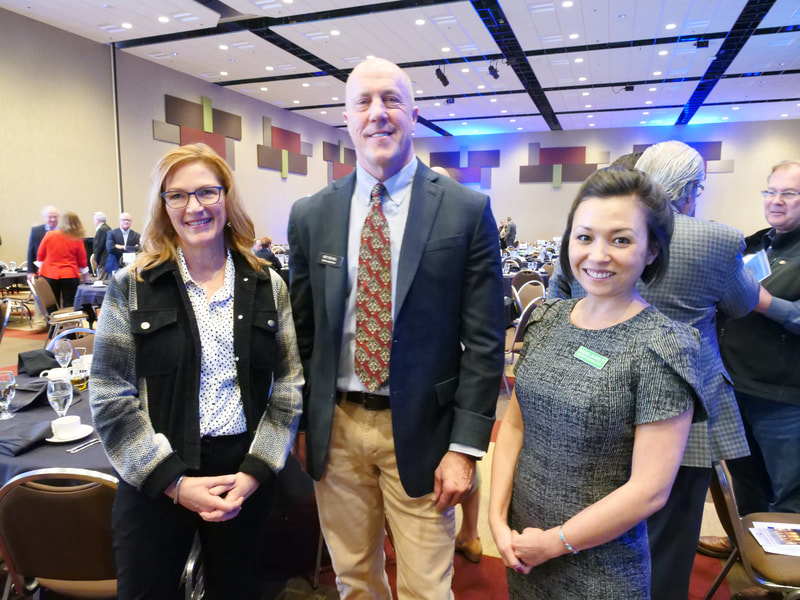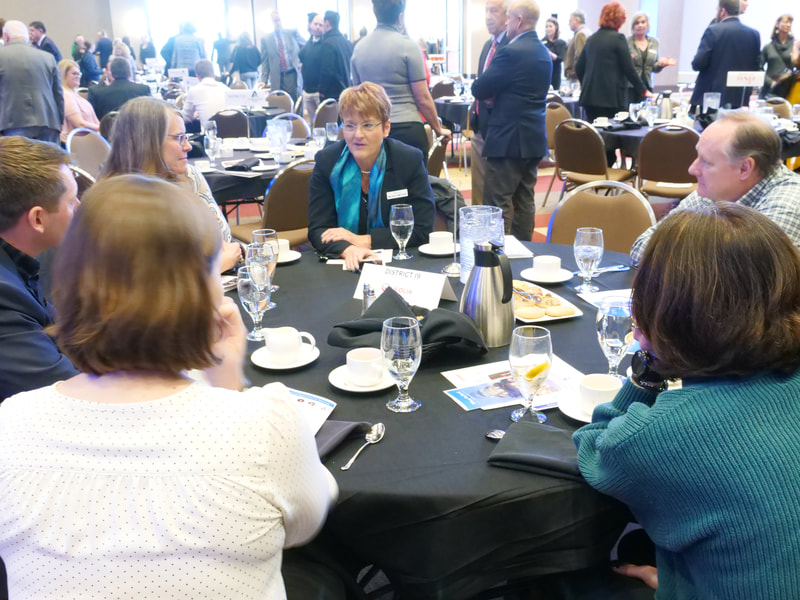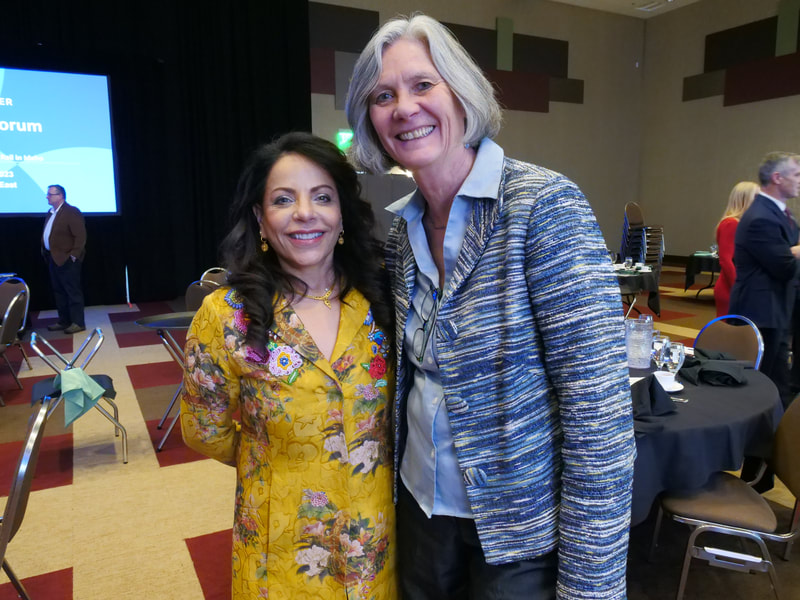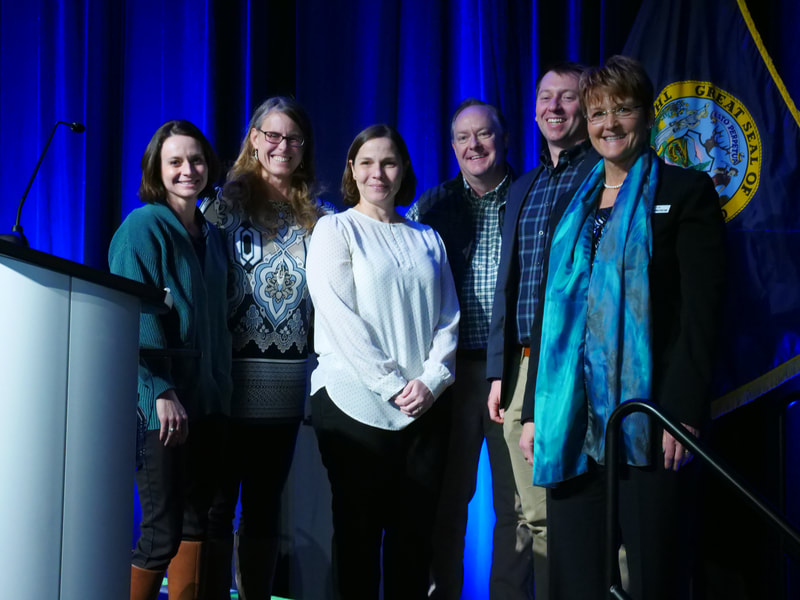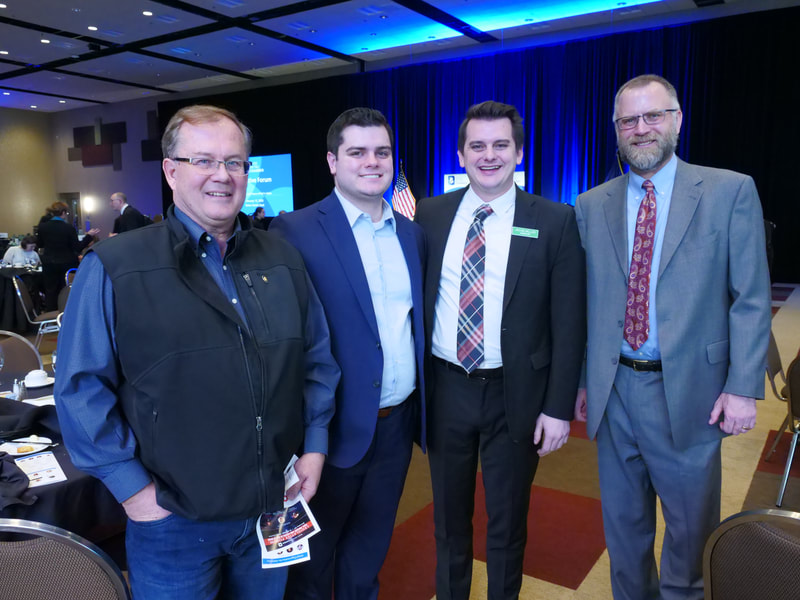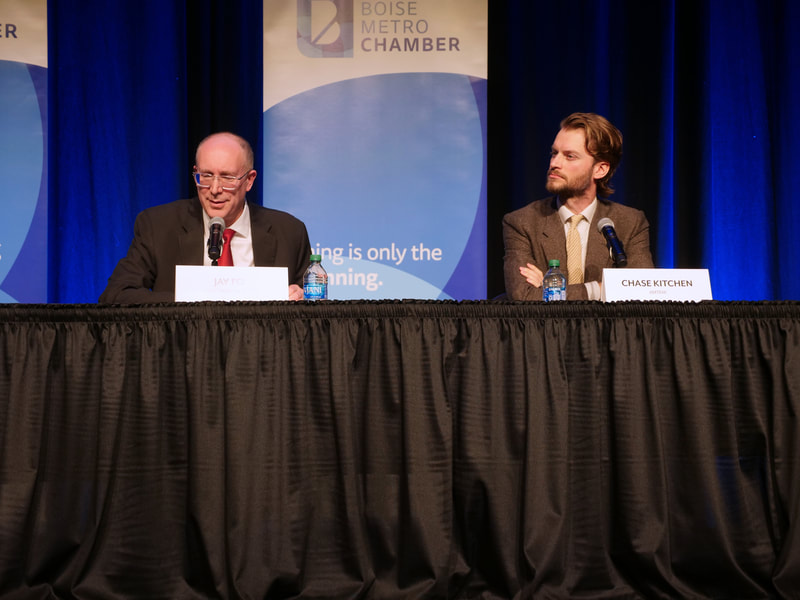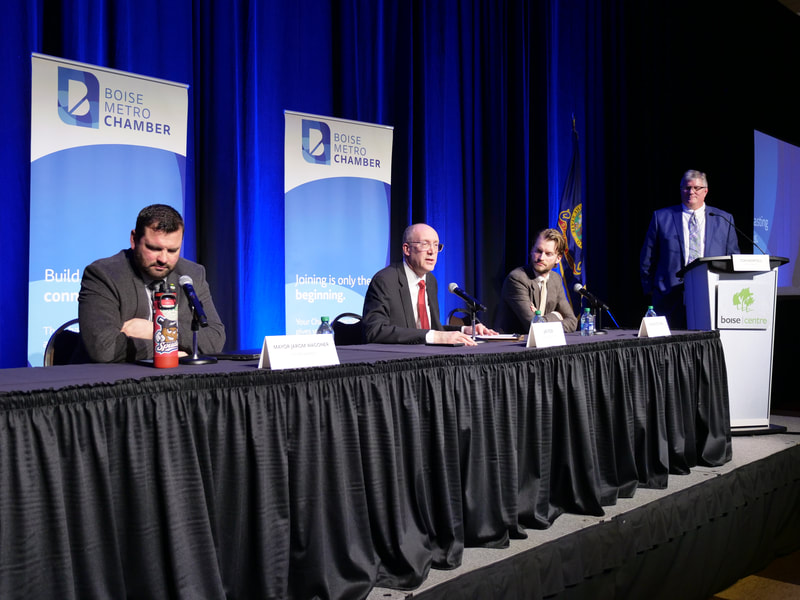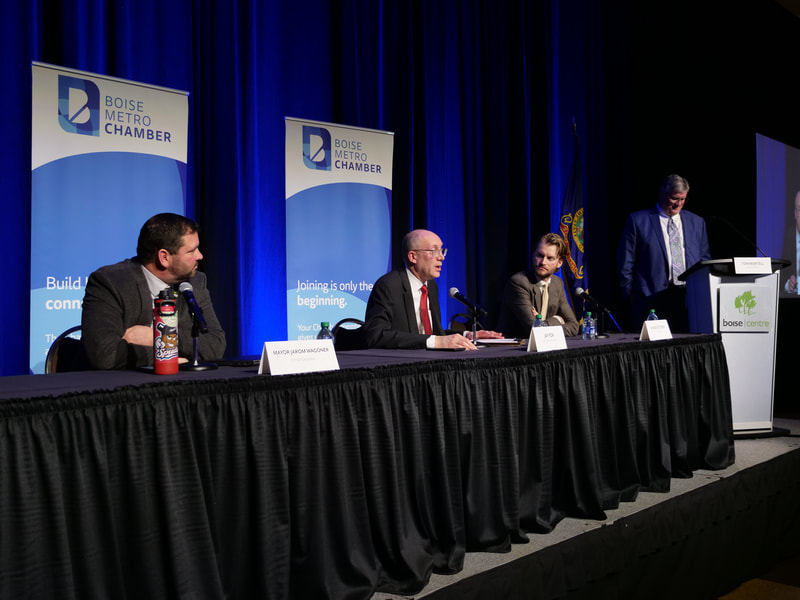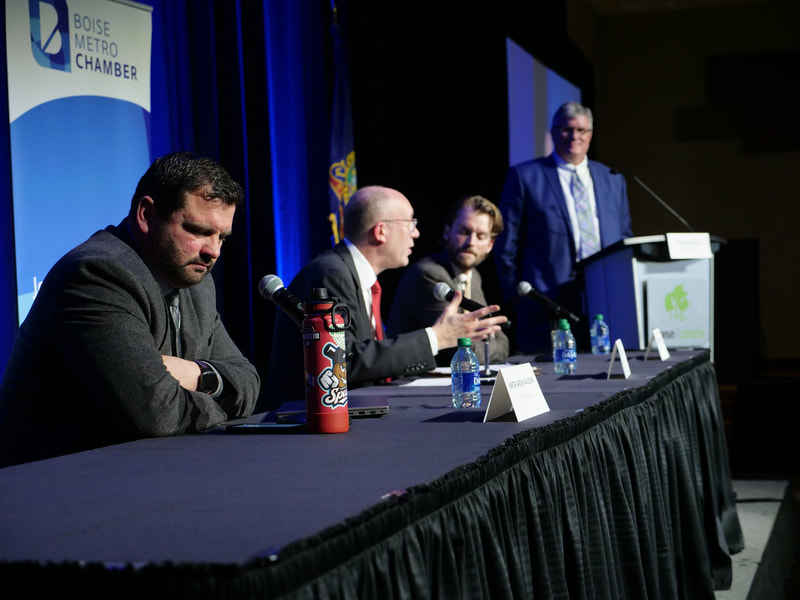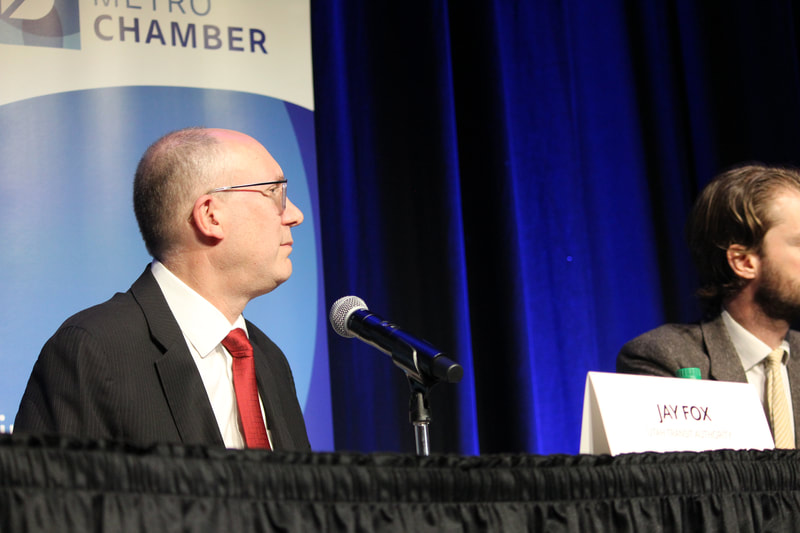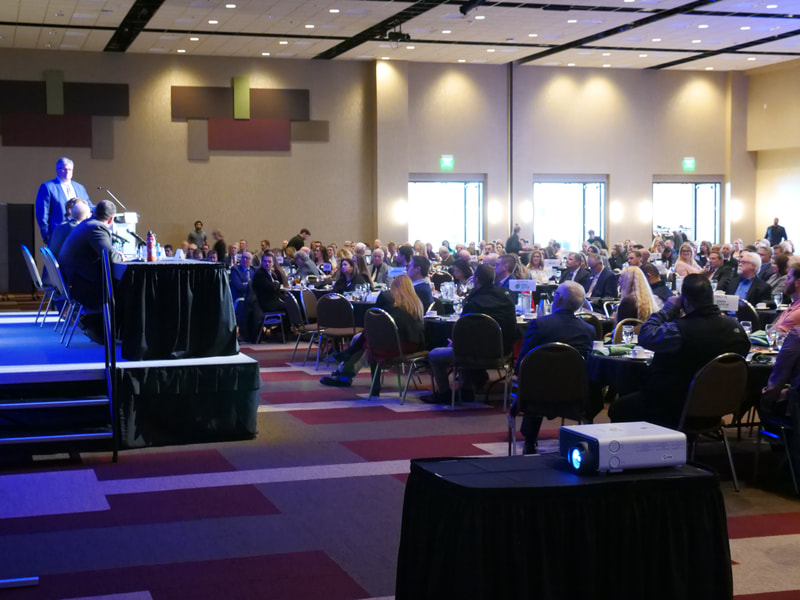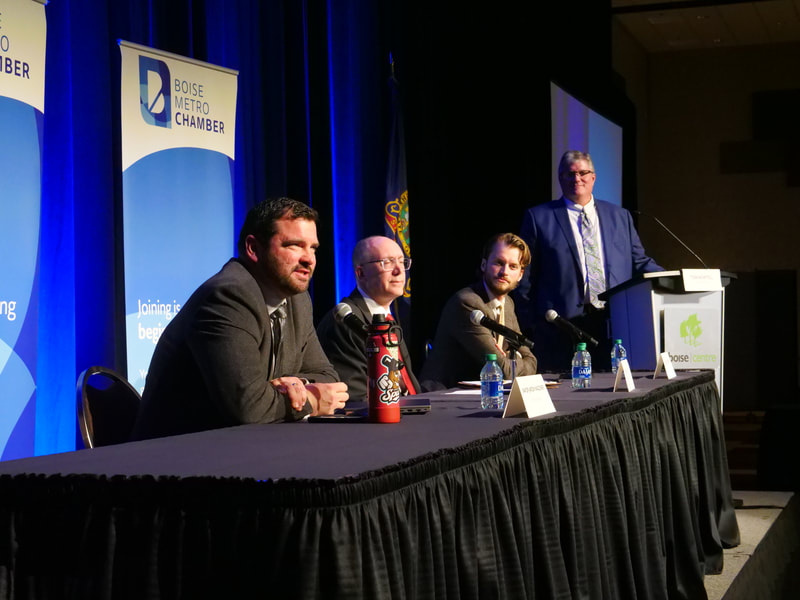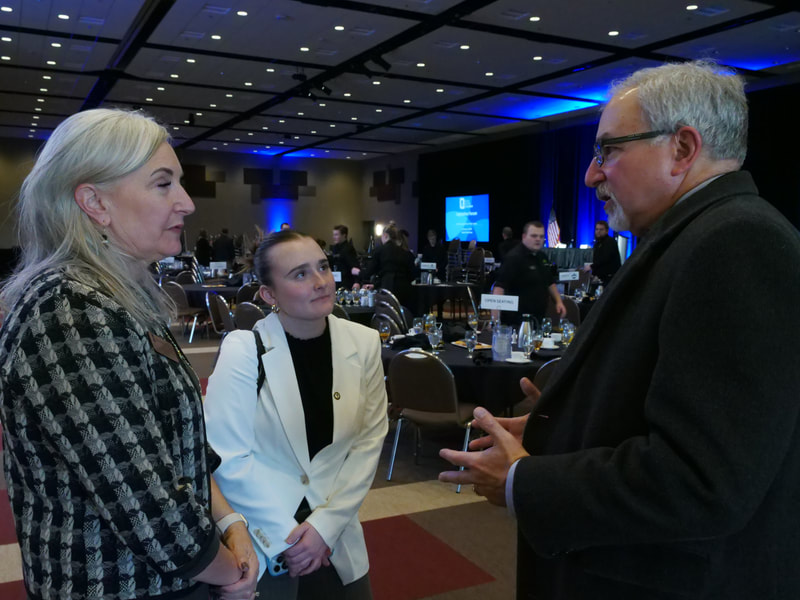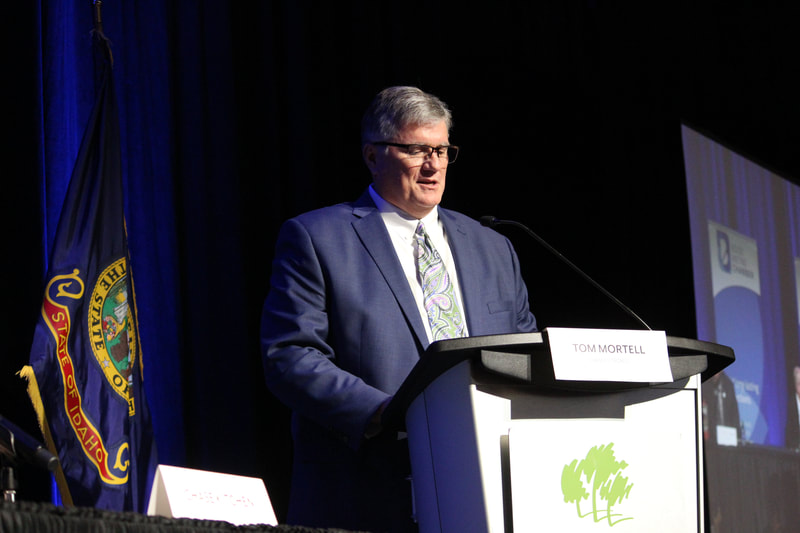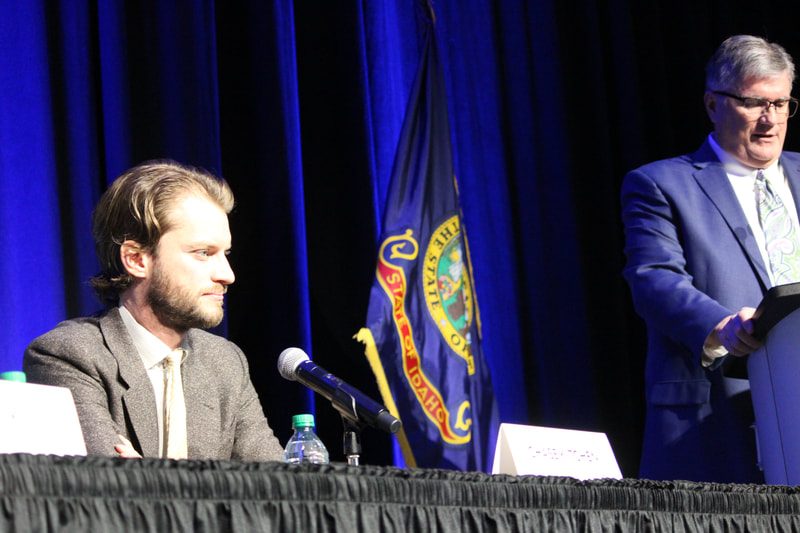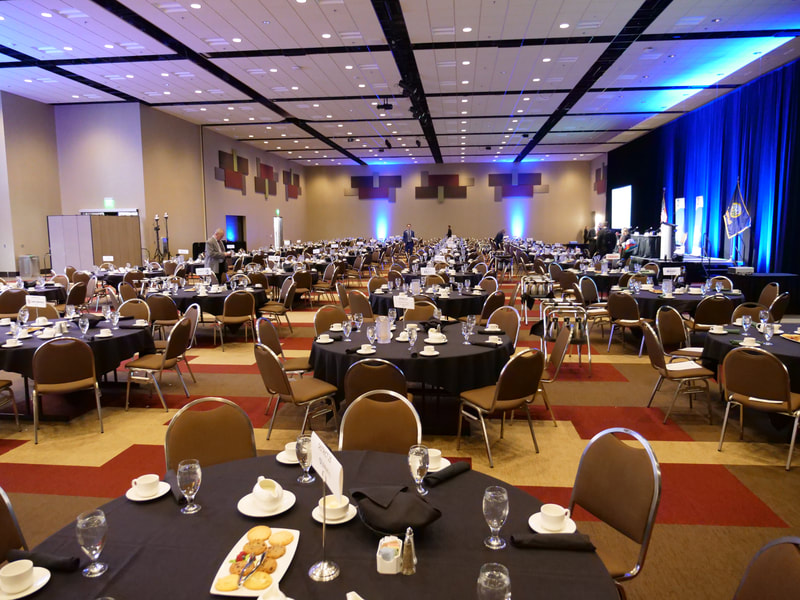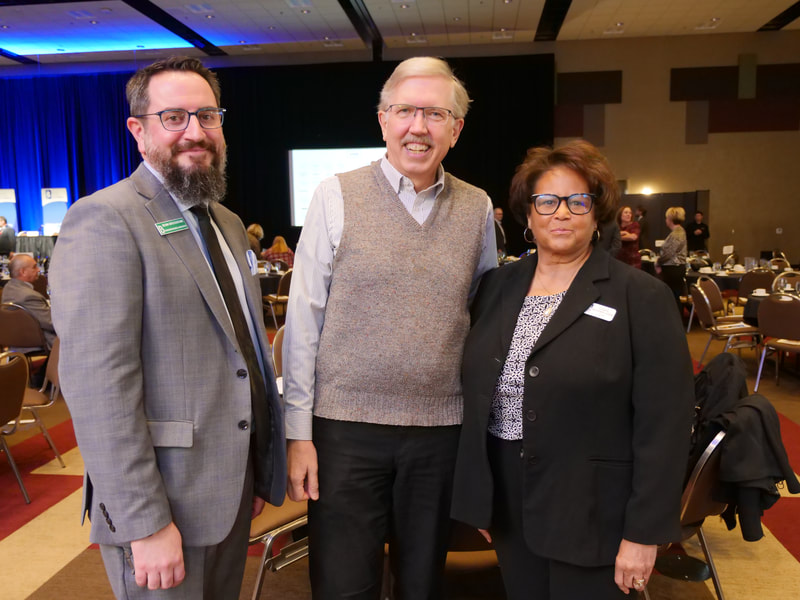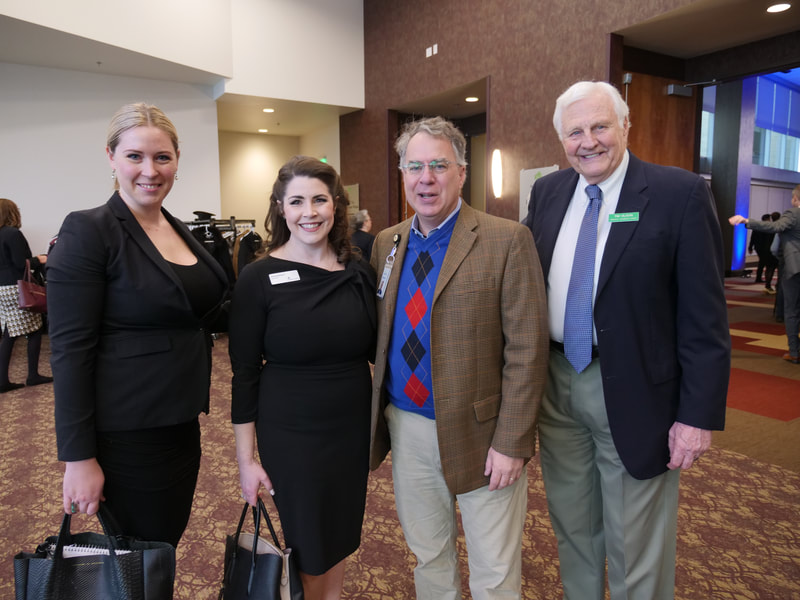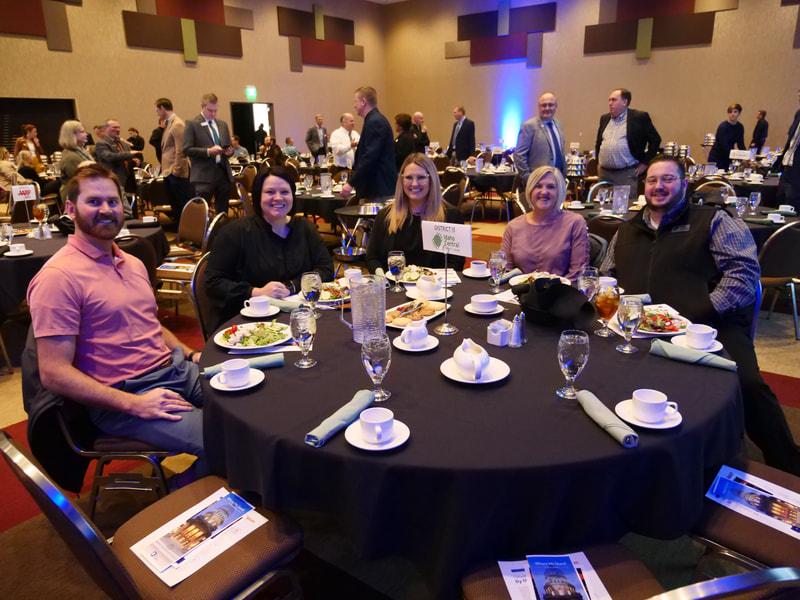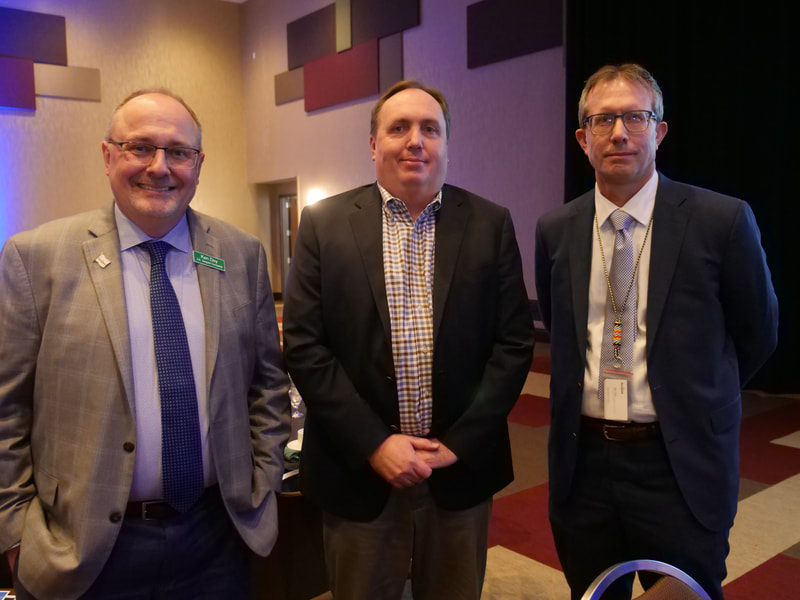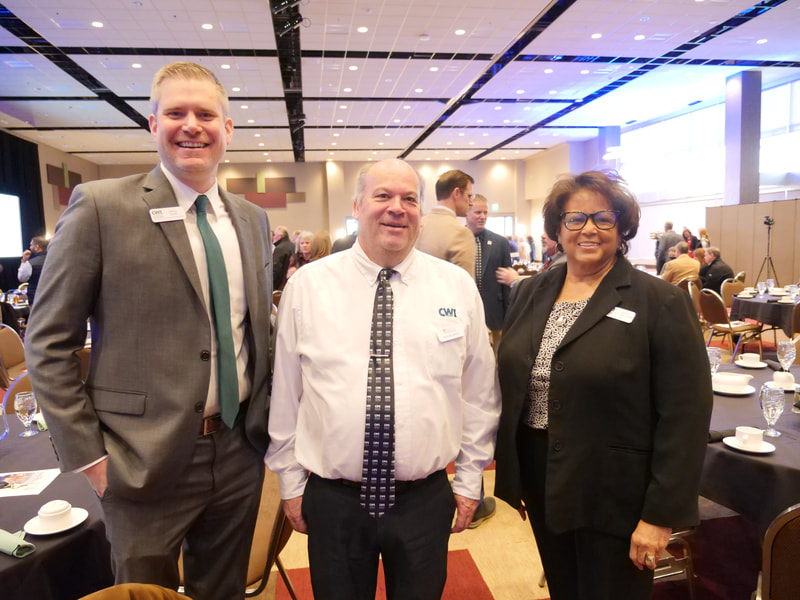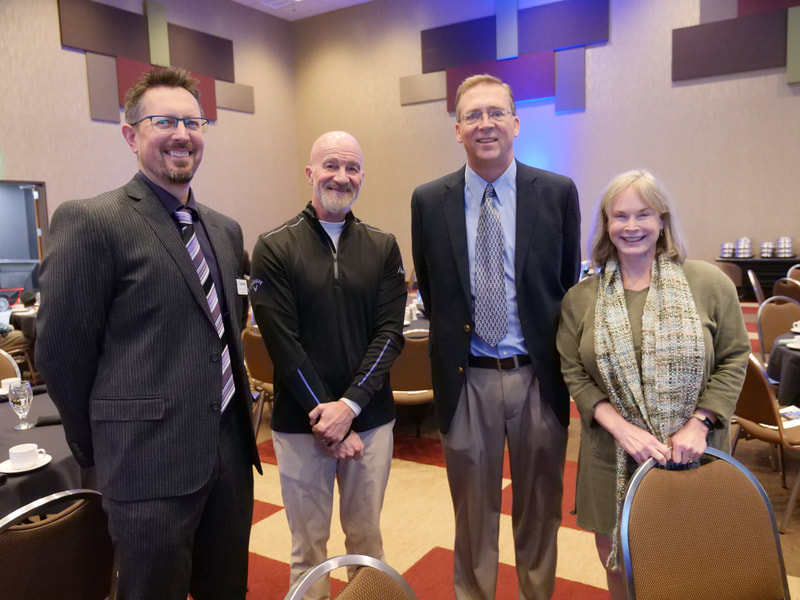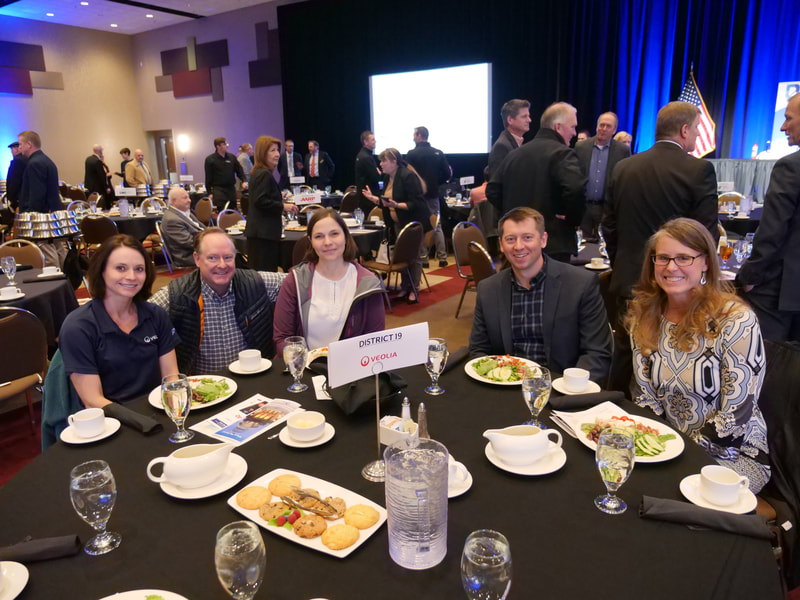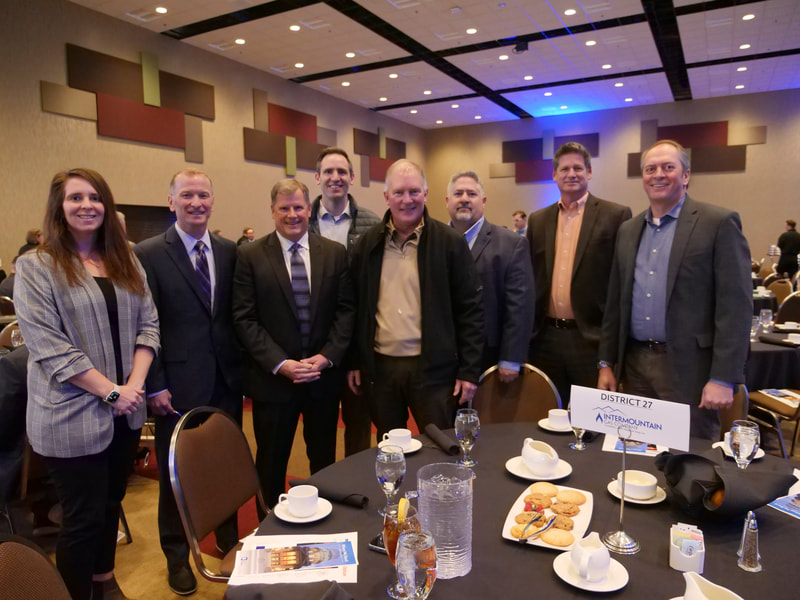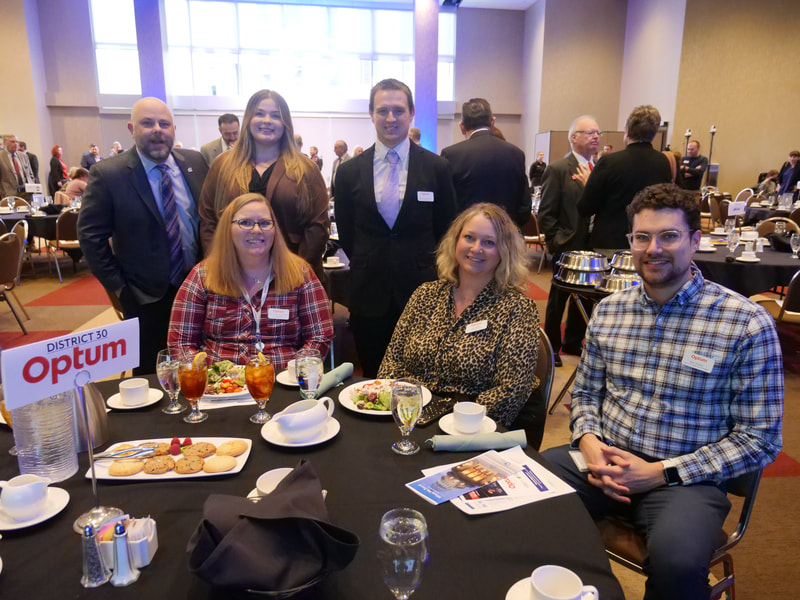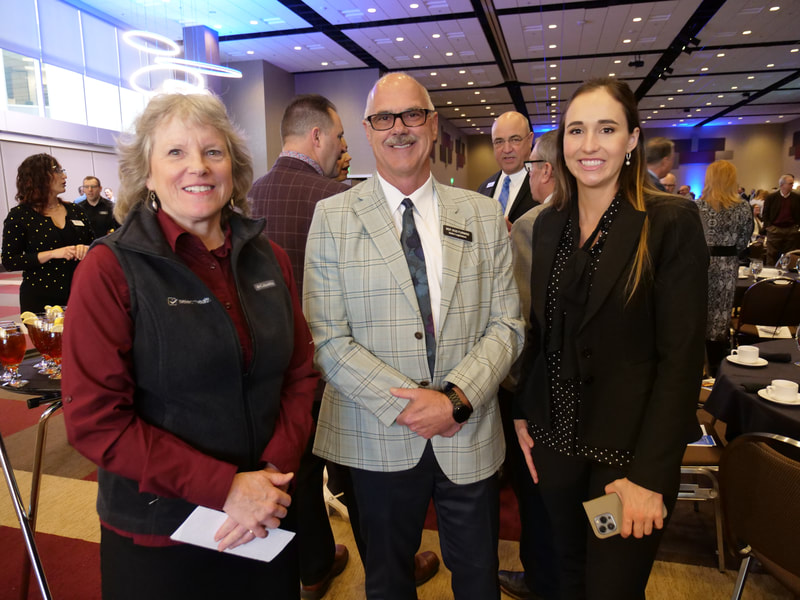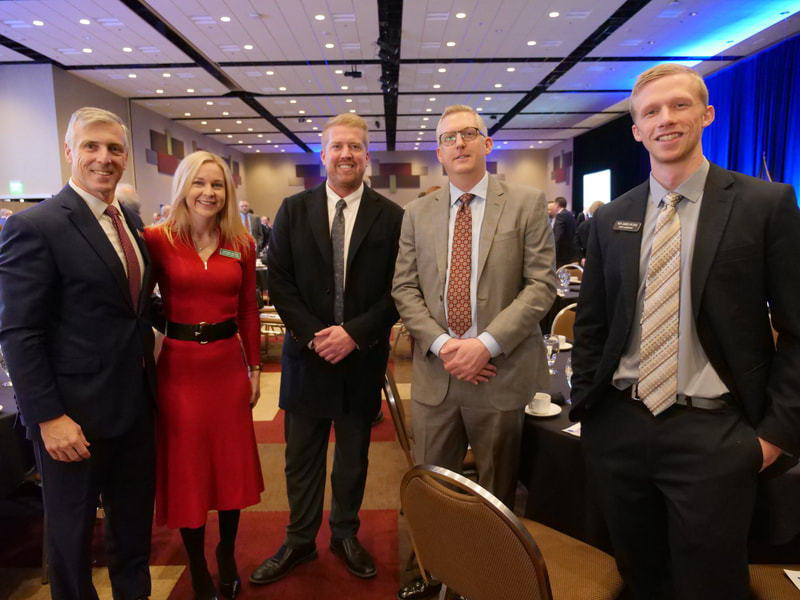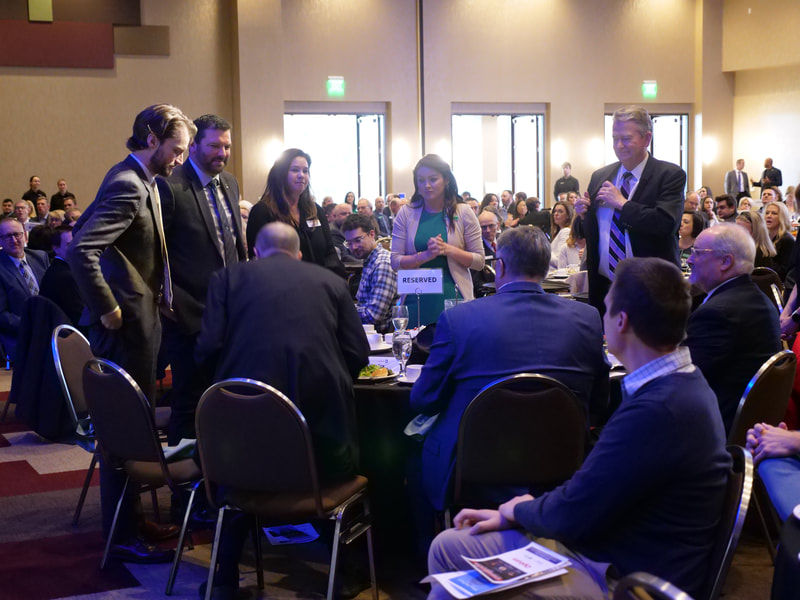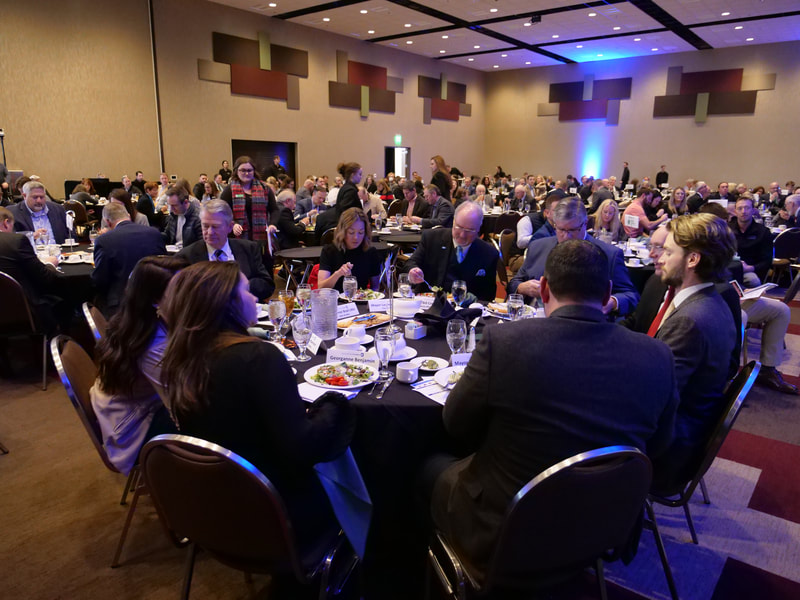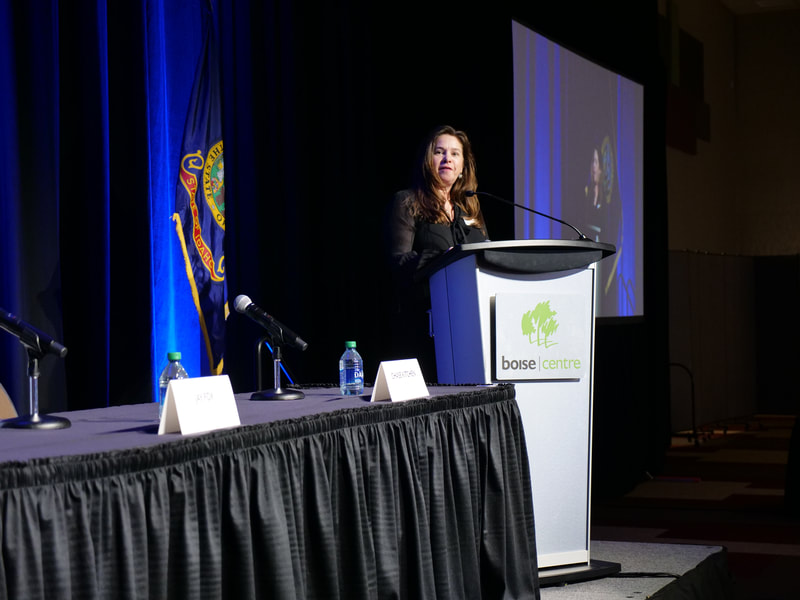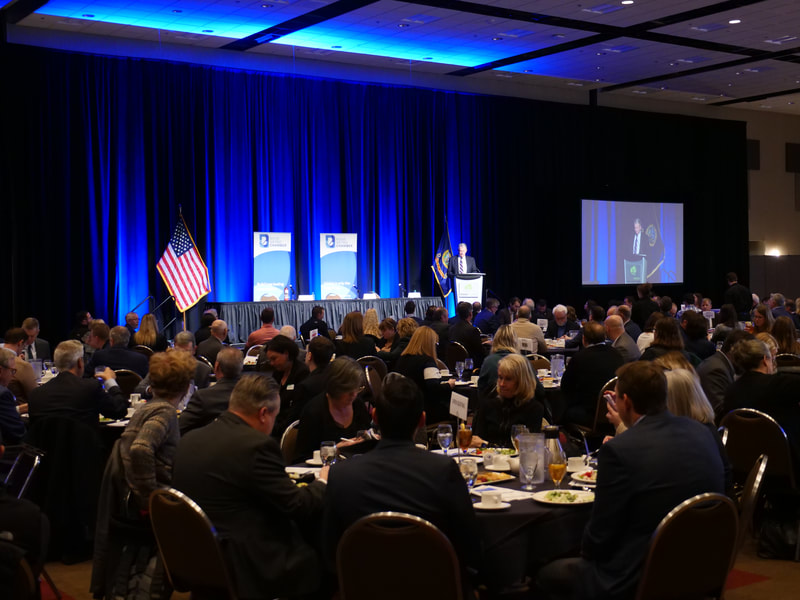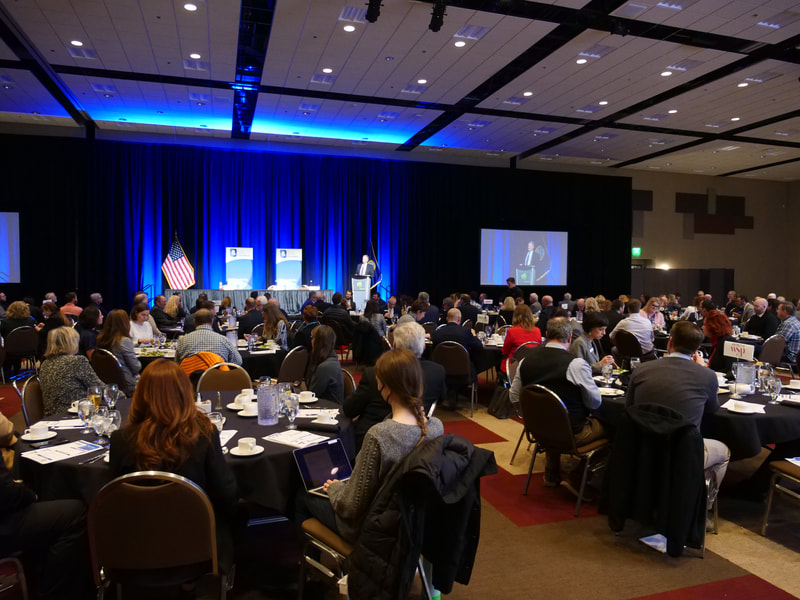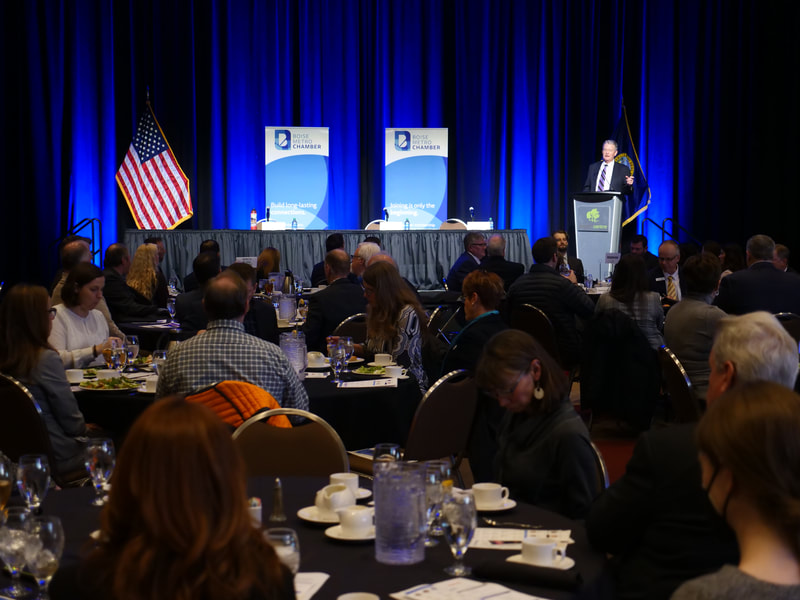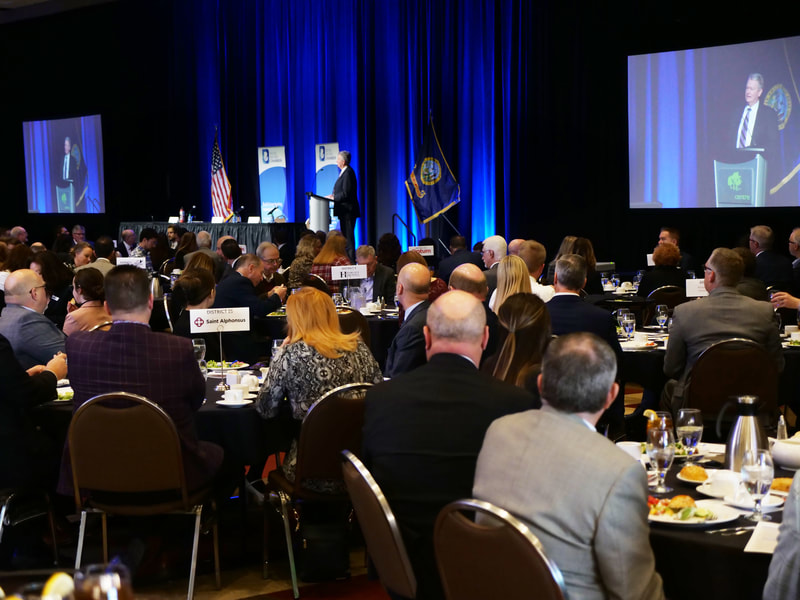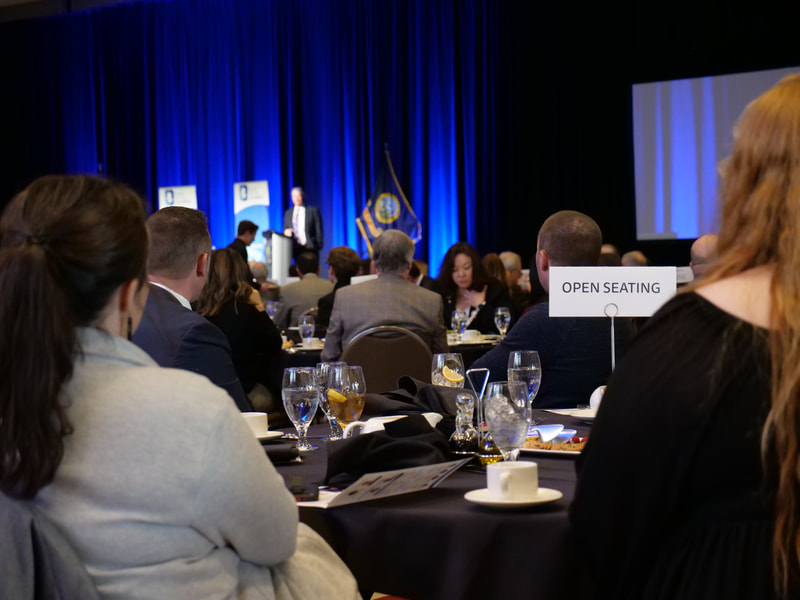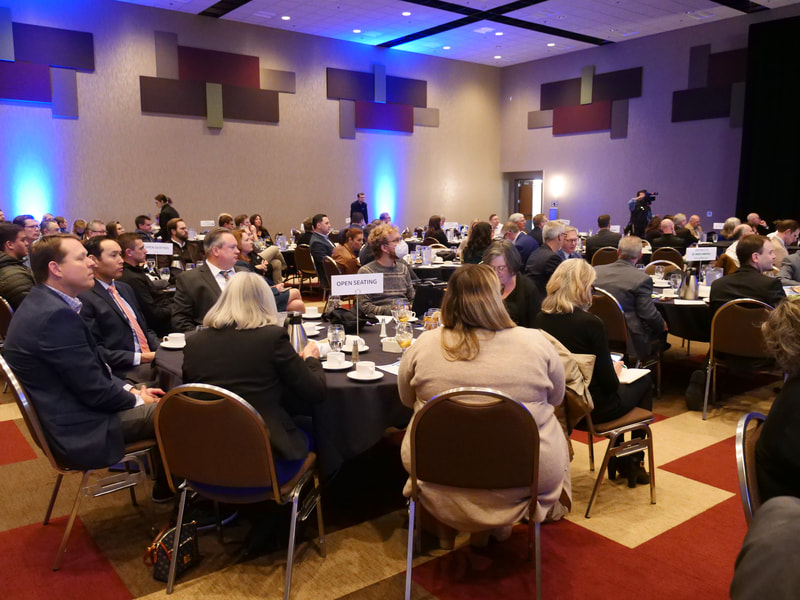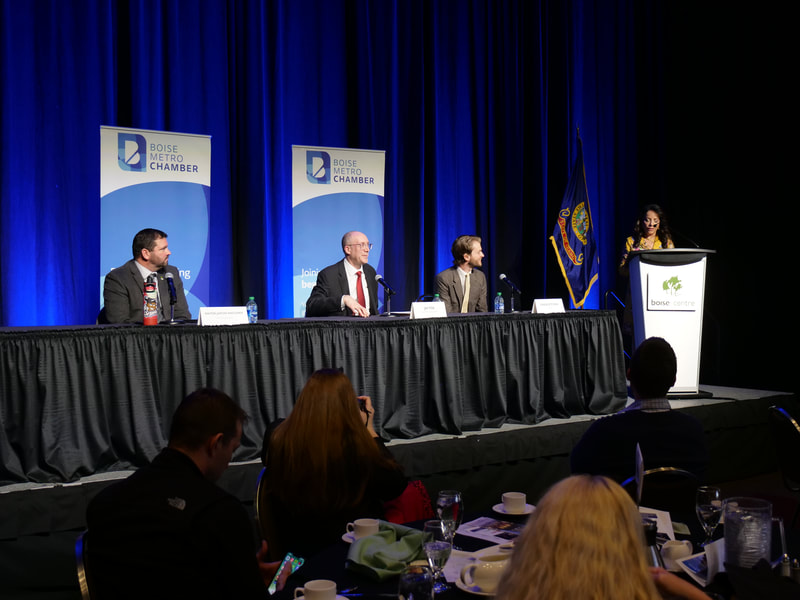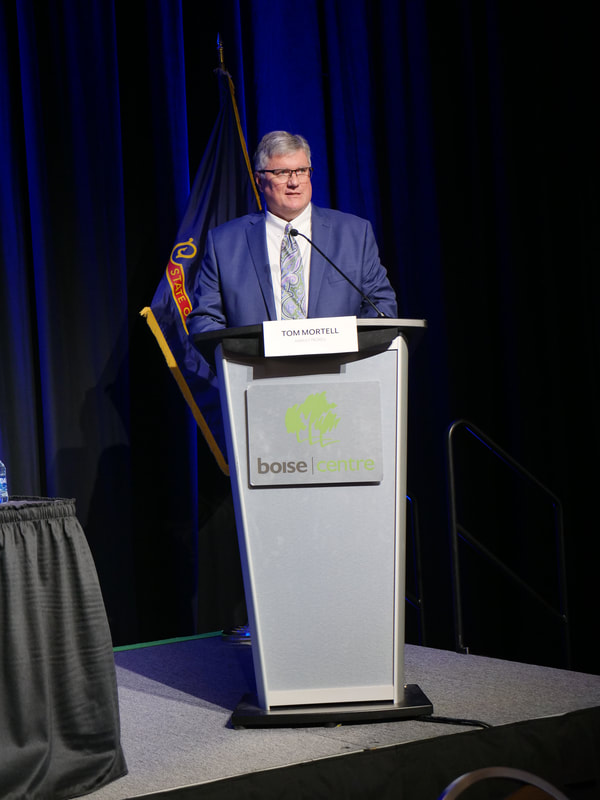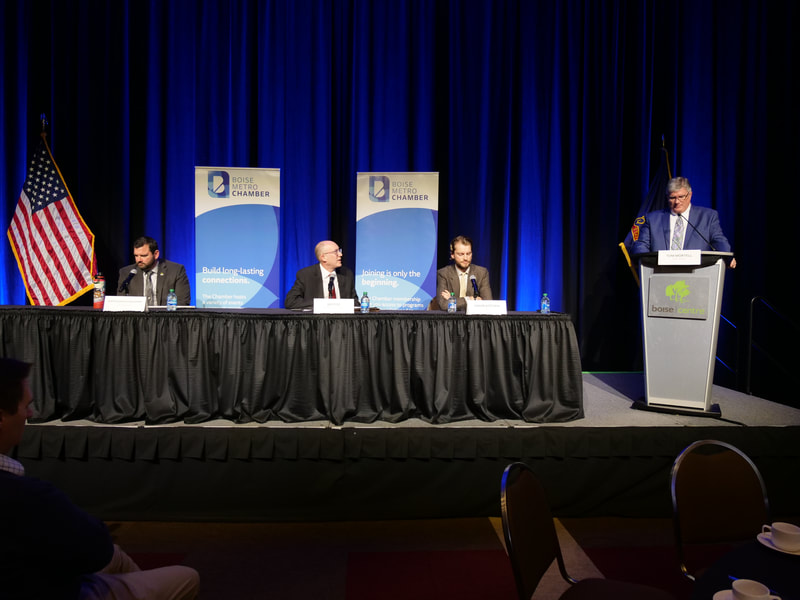|
On Thursday, January 12, 2023, Boise Metro Chamber members, transportation stakeholders, and community members joined Governor Brad Little, Boise Mayor Lauren McLean and nearly all state legislators for the Chamber’s annual Legislative Forum. This year’s topic, “The Past, Present and Future of Rail in Idaho,” has been discussed for several years but has made little progress. The goal of the Boise Metro Chamber’s forum was to bring stakeholders together to discuss the next steps and move the needle toward progress on the important and widely supported issue of restoring passenger rail service. Governor Little opened the forum by discussing the significant and historic accomplishments made possible by recent budget surpluses. Little mentioned the infrastructure investments the state has been able to make, which he once thought were rather lofty goals. The Governor also explained his areas of focus for the coming year, including $120 million he earmarked for property tax relief. Education was another big priority for the governor. The only applause to interrupt the Governor’s speech came when Little mentioned the resources he dedicated to grow the number of skilled workers in the state through education and training programs. Little concluded his comments by saying he was “pleased to sign on” to the letter sent by Idaho public officials last year expressing interest in restoring the old Amtrak Pioneer Line, which stopped in Boise and took passengers throughout the Pacific Northwest until its abrupt halt in 1997. “It would be wonderful if we had that back,” said Little. “We also need to address all the other long term issues with connectivity, whether it’s airport expansion… our state highway system, or our local highways, and Boise Chamber has been an incredible partner for the state and for me in what we do in that area, and I look forward to many more years of progress and advancement.” Following gubernatorial remarks, a panel discussed aspects of rail in greater detail. Panelists included Jarom Wagoner, a former transportation planner and current Mayor of Caldwell, Jay Fox, Executive Director of the Utah Transit Authority and Chase Kitchen, Government Affairs Manager at Amtrak. Tom Mortell, Chair of the Boise Metro Chamber’s Policy Committee moderated the panel. Chase Kitchen explained that the Infrastructure Investment and Jobs Act (IIJA) allocated $60 billion to expanding and restoring intercity passenger rail service in the United States. Kitchen said that the Federal Railroad Administration’s Corridor Identification and Development Program (aka the Corridor ID Program) is soliciting proposals to restore state-supported passenger rail lines. Mayor Wagoner explained the importance of rail to the agricultural and manufacturing industries in communities in the Treasure Valley, but highlighted that cities lack capacity to create a passenger rail system with current resources. Wagoner explained that if such a system was restored, potentially more out-of-state tourist dollars would be spent in our communities. Jay Fox, from the Utah Transit Authority, read aloud to the audience a LinkedIn Post he wrote one day while on the train to work: Dear I-15: This morning, I saw that your snowy roads were filled with stopped cars and frustrated commuters. I was on UTA's FrontRunner service with lots and lots of our customers. You may have seen us - we were the train that passed you and arrived on time at Salt Lake Central thanks to OneUTA's amazing operating team. Transitly yours, Jay Fox alluded to the advantage of passenger rail service that is not interrupted by weather and traffic concerns and added that time spent on the train is much more productive during a commute because travelers can do work or other things they cannot safely do while driving. Fox also explained that Salt Lake’s two-mile passenger rail line cost approximately $100 million per mile but yielded an economic return of $1 billion per mile, or a 1000% return on investment. Chase Kitchen noted that safety is also an appealing factor for many when considering transportation options. Per passenger mile, Kitchen said, a rail traveler has about 6% of the fatality risk compared to someone driving the same distance. Bill Connors, President & CEO of the Boise Metro Chamber, asked, “What’s it going to take to get the feds to pay attention to returning that line from Salt Lake City to Boise?” Chase Kitchen answered that the next step is to apply for funding provided by the Corridor ID Program, for which the deadline is in March 2023. Approved applicants will be awarded $500,000 to develop a “Service Development Plan” which will identify the amount of investment needed, the city/area service map and other criteria. The application process is currently underway and is being led by the Idaho Department of Transportation in partnership with the City of Boise and other stakeholders. This event was made possible by the generous support of presenting sponsor, Optum, and by supporting sponsors, Idaho Central Credit Union and Intermountain Gas Company.
0 Comments
Leave a Reply. |
CATEGORIES
All
ARCHIVES
June 2024
UPDATES |
|
1101 W. Front St., Suite 100
Boise, Idaho 83702 Phone: (208) 472-5200 Website: boisechamber.org Email: [email protected] |
Boise Chamber Hours:
Monday 8AM–4:30PM Tuesday 8AM–4:30PM Wednesday 8AM–4:30PM Thursday 8AM–4:30PM Friday 8AM–3:00PM Closed Weekends |
All content on this website is copyright © The Boise Metro Chamber of Commerce, 2024. All rights reserved. View our Privacy Policy.

